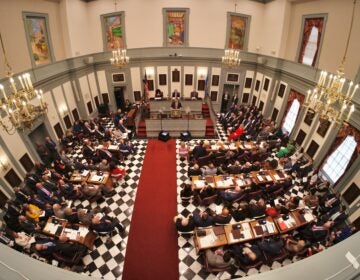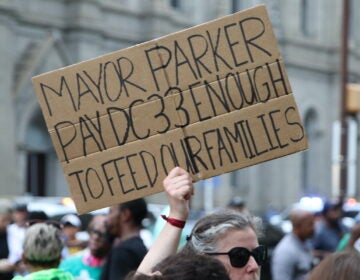Obama is wrong on immigration
Both my parents were immigrants. Many of their friends were immigrants. And many of the children I grew up with were the children of immigrants. Of course I respect and admire immigrants.
We all should, since every American is either an immigrant or the descendent of ancestors who came here from somewhere else. And that includes Native Americans.
But whether we should respect and admire immigrants is not the issue. The hard issue, which too many politicians try to avoid discussing, is whether or not to enforce a numerical limit on how many immigrants we allow in each year.
Enforcing a numerical limit means turning away people like our ancestors, not because they are bad people, but simply because their entry would exceed the numerical limit we have set. Whether we set the numerical limit higher or lower, it has to be enforced to have any meaning. Those seeking entry in excess of the limit must be turned away. And if they come anyway in violation of our laws, they must be deported.
The alternative would be to have no numerical limit on immigration, to allow all who wish to come here in search of a better life to do so. That actually was U.S. policy during the first century of the republic, when our labor needs were thought to be so great that we actually went out and found people who didn’t want to come here and forced them to come here and work against their will.
There is an intellectually coherent argument to be made for restoring open borders and letting in everybody. As a lawyer, I’m sure I could make that argument if someone wanted to hire me to do so. But I doubt that my argument would gain much traction in the court of public opinion.
The magnet’s pull is strong
Americans understand that much of the world’s population aspires to live as we do in the United States, and if they had the opportunity they would come here to try their luck as immigrants. The communications revolution has spread the knowledge throughout the still developing world that residents of advanced countries live remarkably better lives. The transportation revolution has made it possible for anyone in the world to try to join them.
Americans appreciate the positive contributions made by immigrants to our quality of life, and no one is seriously proposing eliminating all legal immigration to the U.S. But what the overall number should be, and what categories of immigrants should be preferred in choosing that number, are topics we should be debating.
We currently have the most generous, and complicated, system of legal immigration in the world. We issue more green cards every year allowing the admission of legal immigrants with a clear path to full citizenship, than all the rest of the nations of the world combined. In a typical year the formula works out to about 1 million such legal immigrants.
But enforcing our legal limits on immigration is difficult because, as the economist Walter Williams observed when he taught at Temple University many years ago, “The poor people of the world may be poor, but they are not stupid. They are as capable of doing multi-functional cost-benefit analysis to determine their own self-interest as anyone in this room.”
Would-be immigrants, unable to qualify legally, weigh the costs and benefits in deciding whether or not to immigrate in violation of our legal limits. If we want to discourage illegal immigration, we need to raise the risks of failure and reduce the benefits of success: More barriers to illegal entry, more enforcement and deportation of violators, less access to work and other benefits while illegally in the country.
An illogical policy
Conversely, if we want to encourage more illegal immigration in violation of our laws, all we have to do is lower the risks of failure, by reducing enforcement, and increasing access to work and other benefits after illegally entering the country.
What we clearly cannot do is lower the risks and increase the benefits of illegal immigration, and then expect illegal immigration to go down. But that is what too many politicians, including President Obama, propose when they endorse so-called “comprehensive immigration reform”, which includes an amnesty and a pathway to citizenship for all those aliens who are present in violation of our immigration laws.
Amnesty is the single greatest reward for illegal immigration to the U.S., and is sure to set off a stampede of illegal immigration as followed the first big amnesty back in 1986.
Instead, if we want to enforce numerical limits on immigration, we should increase enforcement by directing all federal law enforcement officers to enforce our immigration laws to the maximum extent of their capability. Having given up on the fantasy of a “virtual” fence at the border, we should resume building the real, physical fence which has proven effective in reducing illegal entries.
And to reduce the benefits of illegal entry, we should require all employers in the U.S. to use “E-Verify” to electronically check the social security numbers of all employees before they are hired.
Politicians need to stop talking around the issue and focus on the real question: Do we want to enforce or abolish our numerical limits on immigration?
WHYY is your source for fact-based, in-depth journalism and information. As a nonprofit organization, we rely on financial support from readers like you. Please give today.




